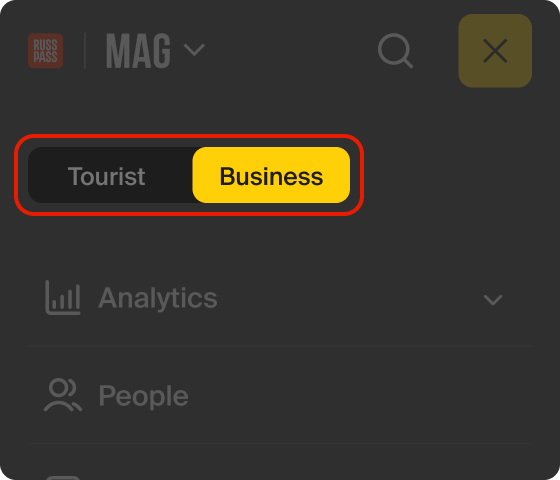
Somnologists confirm that the number of hours of sleep each person needs to fully recover is determined by their genes. There are early birds who prefer early mornings, night owls and pigeons who are active both in the morning and at night. But one important fact unites them all: it is not possible to stay awake for more than one day without harming your health, because otherwise metabolic processes and cognitive functions are disturbed. It is therefore impossible to travel without a good night’s sleep, and that is where hotels come in.
Eco-hotels have become increasingly popular in recent years. The motto is «Get closer to nature». These hotels are usually located outside the city, near or in green areas. The use of plastic is minimised, the nearest organic farms are responsible for supplying produce, the process of reusing and recycling materials is established, and most of the entertainment for guests is related to outdoor recreation.
In 2022 there will be more than 20 thousand certified eco-hotels. Analysts at the Ecohotels service estimate that this number will increase by 15% by the end of 2023.
However, the desire to get away from the noise of the city often leads to logistical difficulties. Asphalt roads to such places are often not paved, making it difficult to reach the destination in bad weather or snowy winters without damaging the car.
So if you decide to open an eco-hotel, consider investing in repairing the road leading to it. And equip a shed with a first-aid kit, drinking water and basic necessities, so that visitors do not suffer from complete infrastructural isolation and do not have any help they might need unexpectedly.
Small but cosy rest areas can also be located in the epicentre of tourist life. Another popular concept is the private mini-hotel. Their owners often live on the same plot of land or even in the same building.
A big advantage of small hotels is the speed of feedback. If a guest is dissatisfied with something, he can bring it directly to the owners, bypassing electronic forms, hotlines and many other «stages». The requirements of car travellers are usually simple: they need a place to rest for a night or two, where they can eat, take a shower, tidy up and perhaps get some work done.
Svetlana Prokofyeva, expert in independent travel organisation:
«I have 20 years of experience in organising independent travel for myself and my friends. I always take the choice of hotel very seriously. Its location should be optimal from the point of view of the planned route. Sometimes it is better to pay a little more for accommodation than to waste time and money on travel and transport.
For those travelling by car, parking is a must, preferably on the hotel grounds and not in public. A big plus is a communal kitchen or buffet. It is always great if the hotel has a highlight, such as balconies in the rooms, a lounge area on the roof or a recreation area with swings and a barbecue. Such nuances are often decisive when choosing a hotel, because the experience of staying in a hotel cannot be excluded from the impressions of the whole trip».
However, hotelier Khachatur Melikyan believes it is important not to overdo the creative approach. «I don’t want to say that we tried to make a creative interior. Russians are already used to austere and practical solutions, which is what we have been used to from a Swedish company for years. The desire to stand out can lead to kitsch, which means that tourists will not come back to us. But it is also impossible to turn a hotel into an office with white laminated chipboard furniture. A strict balance is important here,» says Melikyan.
The credo of every experienced hotelier is to know your guest. Make a portrait of your target audience: couples with children, retirees on holiday and business travellers all have different needs.





Denis Sverdlov, owner of a mini-hotel in Suzdal:
«Guest requests are usually standard: 24-hour check-in, early check-in, late check-out, luggage storage, laundry, good food, cleanliness, good quality of furniture and bedding in the rooms, availability of a safe and medical kit. It is good if you can provide transfers, organise excursions or help book these services».
This option gives a choice if guests have dietary restrictions. A common kitchen with a basic set of utensils will be useful in mini-hotels. Guests will be able to have a snack at any time with something they have bought themselves. According to Sverdlov, requests for individual menus are also not uncommon.
Make the terms and conditions of any services you offer transparent to your guests. They should understand what they can get for free and what they have to pay for: barbecue area, firewood for the fire, use of the bathhouse and so on. Again, a balance is important.
«Many hoteliers try to pass on some of the costs to the guests by introducing paid services such as slippers for money. I have a different view. There are standards of service, there is a desire to make guests friends, and the hotel is a place you want to return to. That is why we will never sell slippers bought in bulk for 39 roubles for 150 roubles a pair. It is almost shameful,» says Khachatur Melikyan.
Both hoteliers agree that it is possible to stand out from the competition by the level of service. That is why you should pay special attention to the selection of staff. Look not only at work experience and additional specialist training, but also at a potential employee’s communication style and behaviour.
«Good service is a guarantee that guests will not only return to your hotel, but also recommend it to their friends and acquaintances. And quality is made up of little things. Don’t be afraid to put free water bottles in the rooms or a cooler on the floor. Have several chargers for different phone models,» says Sverdlov.
The variety of perks depends on your budget. Other common options include birthday or wedding gifts for guests, compliments from the chef, souvenirs with a local flavour, flexible discounts for regulars and special offers.





Provide guests with Internet access, as this is one of the main components of modern hotel service. In addition to chargers for different models, ensure uninterrupted communication channels. This will be an additional challenge for hoteliers located far from mobile phone masts, but there is a solution. «We are in an area with uncertain mobile signal reception, so we have connected the hotel to satellite internet without restricting guest traffic. Is there a cost again? Yes, there is. But I’m going back to the idea of balance and treating the guest as a friend. You don’t charge your friends for a glass of water or a phone call,» says Melikyan.
According to Melikyan, there are more and more of these guests, «which is why we introduced the pet-friendly service. We had to redesign two of the eighteen rooms. We changed the flooring to an easy-to-clean one, and provide beds and bowls for dogs and cats. These rooms are vacuumed with brushes and pet hair removers.
At the same time, as the results of our monitoring showed, this is not provided in the nearest hotels,» says Melikyan.




38% of dog owners prefer to take their pet with them when travelling. The same number of people have reptiles at home. This is borne out by data from the Rambler survey, in which more than 437,000 people took part.
Customer service doesn’t end at the till. Ask customers what they are happy with and what they would like to see added to the service. There are many online services, such as Yandex.Forms, where you can fill out a feedback form and send it to the customer at the email address provided during registration. A similar feature can be added to the hotel’s website.
«New visitors always pay attention to reviews when choosing accommodation options, so don’t hesitate to ask guests to leave a comment about your hotel,» advises Denis Sverdlov. Try to monitor reviews regularly. Many hotels manage to «work off the negative» with a quick response, and for greater efficiency, this should also be made public.






